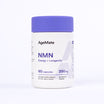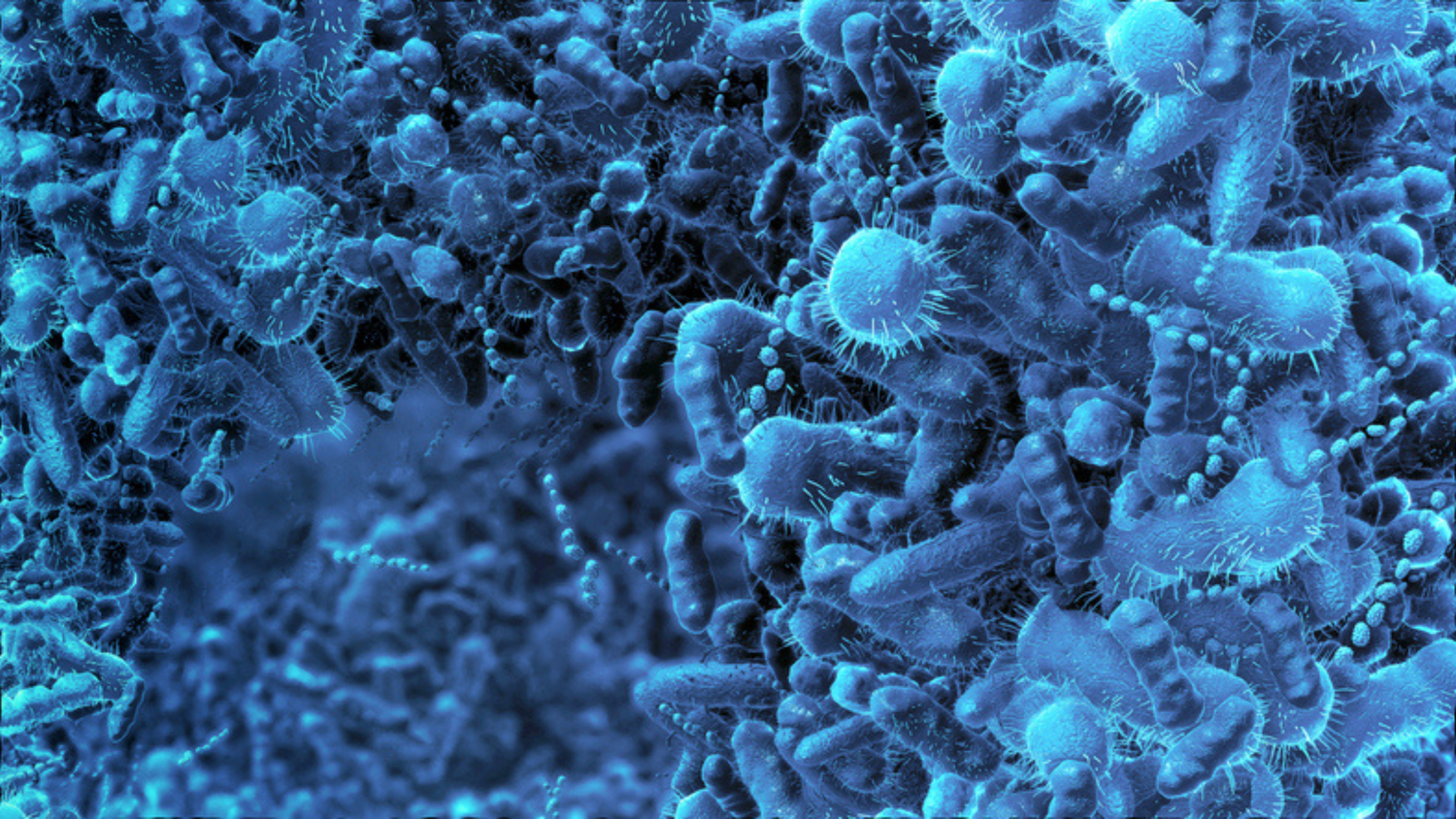Key Takeaways
- The gut microbiome plays a central role in digestion, immunity, inflammation, and cognitive health, profoundly influencing the ageing process.
- Restoring gut microbiome balance with probiotics, prebiotics, and targeted interventions can reduce chronic inflammation and slow cellular ageing.
- Cutting-edge therapies like microbiota transplants and gene editing hold promise for reversing some effects of ageing, though human studies are ongoing.
Did you know that the microorganisms in your gut microbiome collectively weigh about the same as your brain? This microbial “organ” influences not just digestion but also immunity, mental health, and inflammation levels—all factors that affect ageing. The gut microbiome changes significantly as you age, and researchers are uncovering ways to manipulate it to slow ageing and promote longevity.
How Your Gut Microbiome Changes as You Age
As you age, your gut microbiome undergoes significant changes that can impact your overall health. These shifts often lead to a decline in beneficial bacteria and an increase in harmful ones, which can influence everything from digestion to immune function. Understanding these changes is the first step to maintaining a healthier gut as you grow older.
The Ageing Microbiome: Decline in Diversity
The gut microbiome is dynamic, and its composition is highly influenced by diet, lifestyle, and environmental factors (R). Ageing introduces several specific changes, including:
Reduction in Microbial Diversity: Older adults often experience a loss of beneficial species such as Bifidobacterium and Lactobacillus. This decline can impair metabolic and immune functions.
Increase in Pathogenic Bacteria: Harmful bacteria such as Enterobacteriaceae may proliferate, contributing to dysbiosis and low-grade inflammation.
Loss of Commensal Relationships: Commensal bacteria, which provide essential metabolites like vitamins (e.g., vitamin K and B12) and short-chain fatty acids (SCFAs), diminish with age.

Dysbiosis and Its Effects
When your gut microbiome becomes unbalanced—a state called dysbiosis—it can trigger a range of health issues. From leaky gut syndrome to chronic inflammation, the ripple effects of dysbiosis accelerate many hallmarks of ageing. Let’s take a closer look at how these disruptions impact your body.
1. Leaky Gut Syndrome:
The intestinal barrier becomes more permeable with ageing, a condition exacerbated by dysbiosis. Zonulin, a regulator of tight junctions, increases in response to pathogenic bacteria, weakening gut integrity. This allows lipopolysaccharides (LPS) from bacterial membranes to enter circulation, triggering systemic inflammation (R).
2. Chronic Low-Grade Inflammation:
Known as inflammaging, this persistent inflammatory state accelerates cellular senescence, mitochondrial dysfunction, and telomere shortening, all hallmarks of ageing (R).
3. Immunosenescence:
Dysbiosis contributes to the decline in immune system efficacy, characterised by reduced T-cell diversity, weakened mucosal immunity, and overactivation of inflammatory pathways such as the NF-κB signalling cascade (R).
What Studies Reveal About Gut Health and Ageing
Groundbreaking research is uncovering how a healthy gut can influence ageing. Studies on microbiota transplants and SCFA production reveal ways to rejuvenate the immune system, improve cognitive function, and promote metabolic stability. These findings highlight the gut’s potential as a cornerstone of healthy ageing.
Microbiota Transplants
In studies involving aged mice, gut microbiota transplants from younger donors yielded striking improvements:
Immune Rejuvenation: Young microbiota enhanced lymphocyte production and restored gut-associated lymphoid tissue (GALT) function, improving the host’s ability to fight infections.
Cognitive Enhancements: Transplants increased brain-derived neurotrophic factor (BDNF) levels in the hippocampus, reversing memory deficits (R).
Metabolic Stability: Improved lipid metabolism, mitochondrial function, and insulin sensitivity were observed, reducing markers of metabolic syndrome (R).
SCFA Production and Cellular Health
Beneficial gut bacteria in young donors produced higher levels of butyrate, a key SCFA with multiple protective roles:
Epigenetic Regulation: Butyrate inhibits histone deacetylases (HDACs), promoting gene expression patterns associated with reduced inflammation and increased cellular repair (R).
Mitochondrial Support: SCFAs fuel mitochondrial biogenesis, critical for maintaining energy levels and preventing metabolic decline in older tissues (R).
How the Microbiome Influences Ageing
Your gut microbiome plays a critical role in regulating immune responses and controlling inflammation—two key factors in the ageing process. By balancing the microbiome, you can support cellular health, reduce oxidative stress, and even enhance neuroprotection.
The Microbiome-Immune Axis
The gut microbiome regulates immunity through direct interaction with intestinal dendritic cells, macrophages, and T-cells (R). Beneficial bacteria such as Faecalibacterium prausnitzii produce metabolites that:
- Suppress pro-inflammatory cytokines like TNF-α and IL-6.
- Stimulate the production of interleukin-10 (IL-10), an anti-inflammatory cytokine that preserves tissue homeostasis.
- Maintain the development of regulatory T cells (Tregs), which prevent autoimmune reactions.
Chronic Inflammation and Cellular Ageing
Oxidative Stress: Dysbiosis increases reactive oxygen species (ROS) production, damaging DNA, proteins, and lipids. This oxidative stress is linked to neurodegenerative diseases such as Alzheimer’s and Parkinson’s (R).
Senescence-Associated Secretory Phenotype (SASP): Inflammatory signalling molecules from the gut microbiome can accelerate cellular senescence, creating a vicious cycle of inflammation and tissue degradation (R).
The Gut-Brain Axis and Neuroprotection
The microbiome communicates with the central nervous system via microbial metabolites, immune pathways, and the vagus nerve. Beneficial effects include:
Neurotransmitter Synthesis: Bacteria such as Bifidobacterium infantis produce serotonin precursors, enhancing mood and resilience to stress (R).
Protection Against Neuroinflammation: SCFAs reduce microglial activation, protecting neurons from inflammation-driven damage (R).
Cognitive Preservation: Restoring microbial diversity correlates with improved memory and learning in ageing populations (R).

Practical Approaches to a Youthful Microbiome
Simple dietary changes and targeted interventions can make a big difference in maintaining a youthful gut. Incorporating probiotics, prebiotics, and microbiome-friendly foods into your daily routine helps preserve diversity and strengthen your gut’s resilience as you age.
1. Probiotics and Prebiotics
Probiotic strains such as Lactobacillus plantarum and Bifidobacterium breve improve SCFA production, gut barrier function, and immune modulation. Prebiotics such as inulin and fructooligosaccharides (FOS) selectively feed these beneficial strains.
Probiotic Sources: Fermented foods like miso, sauerkraut, and kimchi.
Prebiotic Sources: Chicory root, onions, garlic, and artichokes.
2. Dietary Strategies
A microbiome-friendly diet can enhance microbial diversity and SCFA production:
Polyphenols: Foods like green tea, dark chocolate, and red wine reduce pathogenic bacteria while encouraging beneficial strains (R).
Resistant Starch: Found in legumes, oats, and cooled rice, resistant starch supports butyrate-producing bacteria (R).
3. Fecal Microbiota Transplantation (FMT)
FMT offers a promising intervention for severe dysbiosis. Early research suggests its potential to (R):
- Restore gut microbial diversity in ageing individuals.
- Reverse markers of inflammaging, including IL-6 and TNF-α levels.
- Improve gut-brain signalling, mitigating age-related cognitive decline.

Future Therapies: Personalised Microbiome Interventions
The future of gut health is promising, with innovations like microbiota transplants and CRISPR-Cas microbiome editing on the horizon. These personalised therapies aim to fine-tune your gut’s composition for optimal health and longevity, offering exciting possibilities for slowing the effects of ageing (R):
Next-Generation Probiotics: Engineered strains with enhanced SCFA production and anti-inflammatory capabilities.
Microbial Metabolite Therapy: Direct supplementation with butyrate or propionate for targeted anti-ageing effects.
CRISPR-Cas Microbiome Editing: Precisely modifying microbial genes to optimise metabolic and immunological functions.
Conclusion
Your gut microbiome is more than a collection of bacteria—it’s a dynamic partner in your health journey. By adopting microbiome-supportive practices, you can slow the clock on ageing and enhance your quality of life. To dive deeper into how the gut-brain axis influences longevity, read our Gut Series of blogs here.























